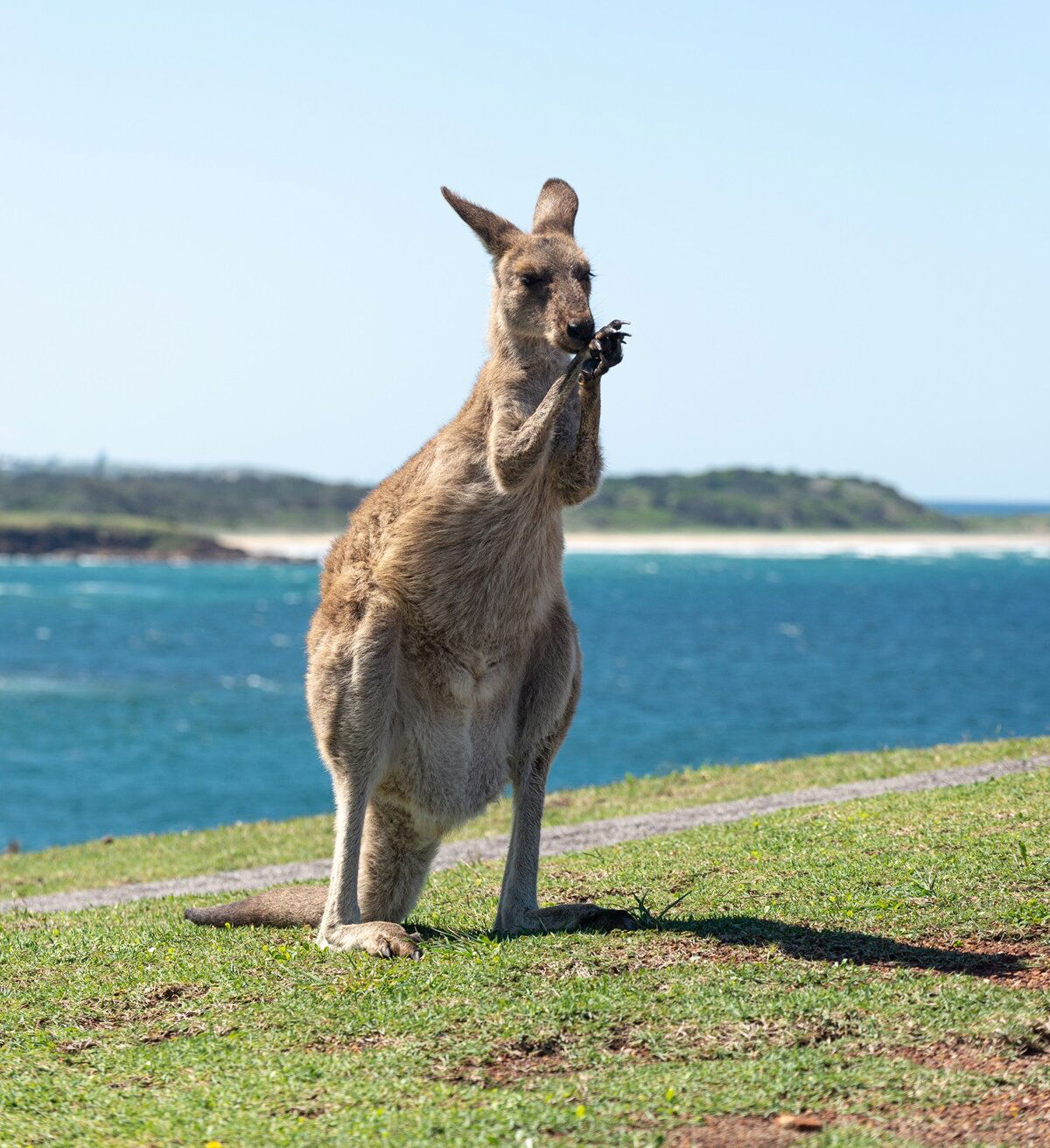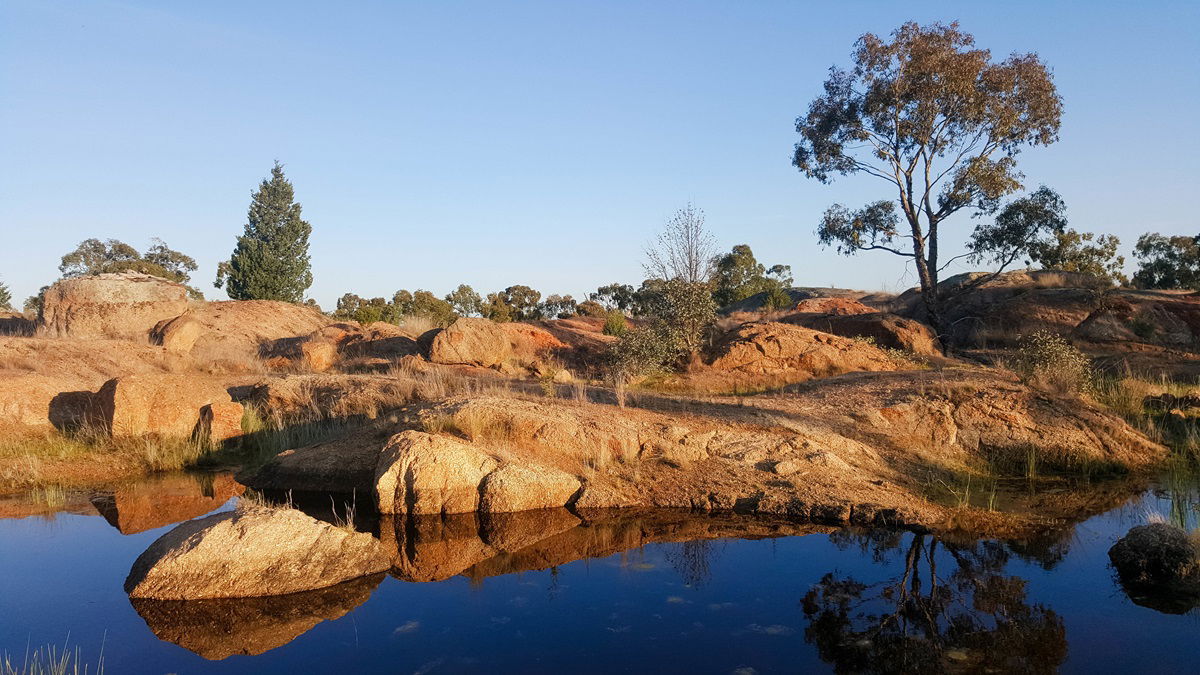
Emigrating to Australia
The outback, white sandy beaches, koalas, kangaroos, an easy-going lifestyle – that’s what probably comes to mind when you think of Australia. Life “Down Under” is a fascination for many, for some to the extent that they want to emigrate there. Are you one of them? Then let us explain what you should consider when making Australia your new home.
Why emigrate to Australia?
Beaches, rainforests, deserts – the unique diversity of its nature makes Australia a tempting destination. The country covers 7.7 million square kilometres and has around 26.6 million inhabitants, so the population density is very low. The climate ranges from warm to tropical. If you are not fond of the cold, Australia is the right place for you, since the winters Down Under are very mild.
As Australia is in the Earth’s southern hemisphere, the seasons are exactly the opposite of the European ones, i.e. spring is from September to November, summer from December to February, autumn from March to May, and winter from June to August.
With koalas, wombats and kangaroos, Australia’s wildlife also has a few unique species to offer that are found nowhere else in the world. However, the country is also home to some dangerous and poisonous animals such as snakes and spiders, so it is essential that you heed warnings and advisories.
Culturally, Australia is a melting pot that unites people from Europe, Asia and other regions. This diversity means that immigrants feel welcome particularly quickly. Another plus is that the official language Down Under is English, which most people learn early in school anyway. This means that, as an immigrant, you can find your feet even faster in Australia.
The Australian easy-going lifestyle also helps you to feel comfortable very quickly. Everything is a bit more relaxed. The people are friendly and open. Many residents feel very connected to nature and this love of nature is especially true for the indigenous population, the Aborigines. Their fascinating culture is one of the oldest in the world.
Australia also scores points with an excellent education and health system. Australian health insurance is financed partly publicly and partly privately – similar to that in Germany.
Requirements for emigrating to Australia
You are now absolutely certain you want to emigrate to Australia? Then you will have to meet the following requirements:
- Visa: In any case, you will need a visa for permanent residence.
- Job: For some types of visas, you already need a locked-in job offer. But even if this is not required, you should already look for a job in Australia before you emigrate.
- Health requirements: A medical examination is a requirement for every type of visa.
- Good conduct requirements: You will also have to present a flawless police clearance certificate for your visa application.
- English language skills: Documented English language skills are also essential for your visa.
- Financial stability: Although you do not need financial proof for the visa, it is important that you have sufficient financial resources for the visa and the first few months in Australia.
Australian visa
In order to immigrate to Australia, a visa that entitles you to permanent residence is absolutely essential.
Most visa types are available for skilled workers who want to immigrate to Australia. For these, first of all your job must be on the “Skilled Occupation List”. Also, most visas require you to have a certain score in a points test. In addition, you will usually have to undergo a “Skill Assessment Test”, in which you have to demonstrate your abilities.
The following visas are likely to be suitable for you:
- Skilled Independent Visa
With this visa, you do not need a permanent position in advance, but your job must be on the “Skilled Occupation List”. You also have to be under 45 years of age, achieve 65 points in the points test and undergo a “Skill Assessment Test”. - Skilled Nominated Visa
This visa basically has the same requirements as the “Skilled Independent Visa”: you have to be under 45 years of age, require 65 points in the points test, have to undergo a “Skill Assessment Test” and your job must appear on the “Skilled Occupation List”. However, you also have to be nominated by a government agency of a state or territory in Australia and the application for this nomination is your own responsibility. - Employer Nominated Scheme Visa
There are several options for this visa.- Direct Entry Stream: You are nominated by an Australian employer, your job is on the Skilled Occupation List, and you have the required language skills.
- Labour Agreement Stream: Your future employer may conclude a “Labour Agreement” with you. However, only some companies are authorised to do this.
Healthcare system and health insurance in Australia
In Australia, the healthcare system is a mixture of private and public health care. All Australian citizens and people with permanent residence permits are entitled to the statutory health insurance, which is called “MEDICARE”. In Australia, you only have to pay 1.5 percent of your income for statutory health insurance, not the 7.3 percent that you have to pay in Germany. However, statutory health insurance in Australia does not cover as much as the equivalent in Germany.
Primary medical care by GPs and hospitalisations are usually fully covered by MEDICARE, but only if you are treated in a government clinic and by doctors who are approved by MEDICARE. Most specialist medical care, such as ophthalmological and dental treatment or speech therapy, are not covered by statutory health insurance. Ambulance transportation is not covered either and can be very expensive. Although patients have to pay for medications themselves, these are heavily subsidised by the state and therefore very cheap.
Most people in Australia also take out private insurance for costs that are not covered by MEDICARE.
Tip: If you go to what are known as “bulk billing doctors”, you will not have to pay for the treatment in advance. Otherwise, you will have to pay the costs in advance and then submit the bills to MEDICARE.
Australian education system
The education system in Australia is considered one of the best in the world and is highly regarded. Most schools in Australia are state schools, some are private. However, all schools must follow a state curriculum. Compulsory schooling begins at the age of six. Before that, children usually go to nursery school for a year, which in most cases is in the same building as the primary school.
- Primary School (1st-6th grade)
Children start with primary school, which is roughly comparable to the German Grundschule. - Secondary School (7th-10th and 11th-12th grade)
They then attend a secondary school – first, junior high school from the seventh to the tenth grade. After that, they can either do an apprenticeship, i.e. “vocational education”, or they attend the eleventh and twelfth grades of senior high school. After graduating from senior high school, they may attend university.
The school day in Australia starts at around 9 a.m. and ends at around 3 p.m. Students at Australian schools have a “morning tea break” in the morning and a “lunch break” at noon. Australian schoolchildren usually have to wear school uniform. Most schools also have school sports teams in many different sports, such as hockey, rugby, football, tennis, swimming, etc.
Unlike in Germany, the school year begins at the end of January or beginning of February and lasts until shortly before Christmas. This means that pupils have their summer holidays over Christmas. This is because the seasons in Australia are the other way round, so summer begins in December. The school year is also divided into three terms.
And the grading system is also a little different than in Germany. It is not based on numbers, but rather on letters, like in the USA:
- A (Distinction): 1
- B (Credit): 2
- C (Pass): 3 to 4
- D or F: failed
Cost of living in Australia
The financial aspect is of course of great importance when it comes to emigrating to Australia. How much money will you spend in Australia? What is the cost of living?
The cost of living in Australia is about as high as in Germany. Eating out and public transport are a bit more expensive than in Germany, but alcohol is much more expensive. Petrol, on the other hand, is a lot cheaper.
Here is a small overview of the cost of groceries in Australia:
- Milk 1 l: approx. 1.23 euros
- Bread: approx. 4.30 euros
- Pack of eggs (12 pieces): approx. 4.30 euros
- Tomatoes 500 g: approx. 2.15 euros
- Apples 1 kg: approx. 2.21 euros
- Water 1 l: approx. 0.59 euros
- Minced beef 500 g: approx. 5.53 euros
- Bottle of wine: approx. 9.21 euros
- 6-pack of beer: approx. 12.89 euros
Source: https://www.woolworths.com.au/
Accommodation in Australia
Another important issue for your emigration is the housing market Down Under. Renting a flat or house is very expensive in Australian cities such as Sydney, Perth and Melbourne. Rents are cheaper in rural areas. It is more common in Australia to buy a property. This is actually cheaper in the countryside and in the suburbs than it would be in Germany. In the cities, properties are about as expensive to buy as in the more expensive German cities such as Munich.
You should keep in mind when renting that it is customary to conclude a fixed-term lease. You may also have to pay your rent weekly.
Buying a property is relatively straightforward in Australia. However, if you want to buy real estate there while still in Germany and before being granted a permanent visa, you will have to have your property purchase approved by the Foreign Investment Review Board (FIRB). If you already hold a permanent visa, on the other hand, you can buy property without any additional requirements.
It is probably advisable to first rent a flat or house for your first few months in Australia. Once there, you can also look for “open houses” so that you are not buying sight unseen.
You can either search for flats and houses online:
or you can take a look at the real-estate section of Australian newspapers such as The Australian or Herald Sun.
Work and jobs in Australia
If you are planning to emigrate to Oz, it is also certainly worth having a handle on what the working conditions are like there and how to find a job.
In Australia, the full-time working week is 38 hours. There are different working time models: full-time, part-time and casual. With the “casual” model, you do not have a fixed number of hours per week but are available on call as needed. However, with this working time model, you also will not be granted any paid vacation or sick days. Just like in Germany, employment contracts can either be permanent or fixed term.
Down Under, you get four weeks of paid leave. There are seven public holidays in Australia, with the individual states having individual holidays in addition to these. Victoria is the frontrunner here with 13 public holidays. The number of paid sick days is limited to ten per year. If there are still a few of these days left over at the end of the year, you can carry them over to the new year.
Australia also has statutory notice periods, which differ according to the length of time you have been with the company. For example, if you have been with the company for less than one year, the notice period is one week.
Jobs and applications
Can you imagine working in Australia? For your application Down Under, you will need the following documents:
- Cover letter
- Curriculum vitae
- References
Your cover letter should not just be a reiteration of your CV. Rather, you should use it to highlight the milestones of your career, address the job posting and the company, and explain why you are the right person for the job.
In Australia, it is not customary to add a photo to your CV, and you should also refrain from providing the following information: religious affiliation, gender or nationality. It is also standard practice to describe your duties and responsibilities in your previous employment in more detail in your CV. Start with your current job.
The biggest difference to Germany is the references, which replace report cards and certificates in Australia. So, basically you do not have to send any certificates, but need letters of recommendation from former employers or, even better, people in Australia who can recommend you for the job.
You can find jobs on the following online portals or in Australian newspapers:
- seek.com.au
- au.indeed.com
- workforceaustralia.gov.au
- job-directory.com.au
- careerjet.com.au
- au.jobted.com
- adzuna.com.au
- ethicaljobs.com.au
Tip: Unsolicited applications are not common in Australia and are usually not considered, so it is better to apply for specific job vacancies.





Translation of documents for an Australian visa
When applying for a visa, you must present all documents, except your passport, in English.
Note: As a tourist, you can drive a car in Australia as normal with your driver's licence. Having a certified translation of your driver's licence is recommended in case you come across a traffic check. If you are planning to move Down Under permanently, many states require you to have your driver's licence converted. Check again whether this applies to your state.
Checklist: Emigrating to Australia
You now have some information for your emigration to Australia. We have summarised all the important points for you in a short checklist:
- Check visa requirements
- Build up financial reserves
- Find a job
- Prepare documents for visas, including the translation of your documents
- Apply for a visa
Got your visa? Congratulations!
Now you can start preparing for Australia:
- Rent or buy a flat or house
- Prepare for the move
First steps after your arrival in Australia:
- Apply for a tax number
- Open a bank account
More information about Australia
Key data Australia
Population: 26.64 million
Size: 7.7 million square kilometres
Capital: Canberra
Largest city: Sydney
States & Territories: New South Wales (Sydney), Victoria (Melbourne), South Australia (Adelaide), Queensland (Brisbane), Tasmania (Hobart), Western Australia (Perth), Northern Territory (Darwin), Jervis Bay Territory, Australian Capital Territory (Canberra)
Currency: Australian Dollar (AUD)
Units of measurement: metric system (kilometres, metres, centimetres, etc.)
Official language: English
Road traffic: Left-hand traffic
German Embassy: Canberra
Climate: moderate to tropical
FAQs: Emigrating Australia
There is no general requirement as to how much money you should have to emigrate to Australia. However, you can roughly calculate how much money you need for the visa and your start Down Under. The visa will cost you between 3,000 and 4,000 euros. You will also need sufficient financial resources for the first two to three months in Australia plus additional financial reserves for unforeseen events.
To emigrate to Australia, you must apply for a permanent residence visa. The following visas are likely to be suitable for you:
- Skilled Independent Visa
- Skilled Nominated Visa
- Employer Nominated Scheme Visa

